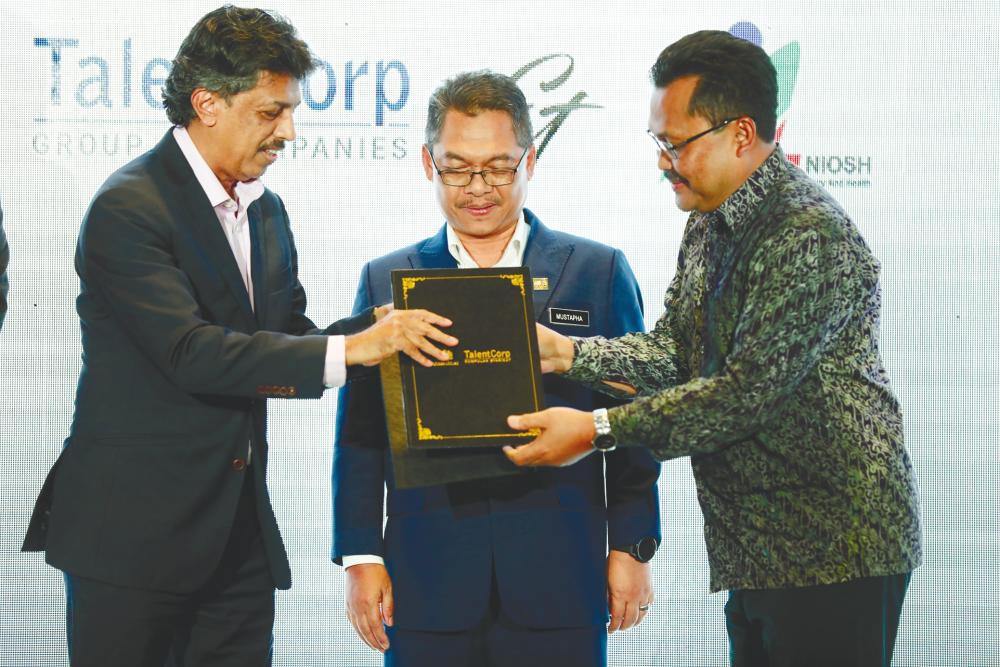PETALING JAYA: Since 2011, some 10,000 Malaysian professionals working abroad have applied to return home under the Returning Expert Programme (REP), said Talent Corporation Malaysia Bhd Group CEO Thomas Mathew.
“Of the number, more than 6,000 have been approved under the programme, and over 4,400 have successfully reintegrated into the Malaysian workforce,” he said.
REP was introduced in 2001 to develop a world-class workforce by encouraging Malaysians abroad to return and work in the country.
In 2011, TalentCorp assumed the role of the secretariat for REP from the Human Resources Ministry to address the immediate and critical gaps in skills and talent shortages in the country.
Mathew said the top five professions recorded through REP are engineers, bankers or financiers, senior management executives or C-Suites, medical specialists and experts in information and communication technology fields.
He said the impact of REP is evident as returning experts contribute their skills and knowledge to various economic sectors.
“REP returnees are mostly high-calibre professionals and those with highly specialised skills. They contribute meaningfully to the development of the country, help create job opportunities in Malaysia, and bring valuable experience that contribute to our talent pool.”
Mathew also said approximately 1.8 million Malaysians have migrated globally, based on the 2020 World Migration Report.
“According to the World Bank, the typical highly skilled Malaysian chooses five countries for migration – Singapore, Australia, the US, the UK and Canada,” he said, adding that a choice destination was Singapore, where 1.13 million Malaysians live and work.
He added that Malaysian professionals would consider returning home if the country offered them the right opportunities for continued career growth and development.
“It is not citizenship that talents look for when migrating. It is a combination of job role and satisfaction, rewards, ability to make an impact and meritocracy in promotions and career advancements.”
He said the probability of them returning to Malaysia is between 40% and 70%, especially for those already with a job offer.
“We found that despite living abroad, over 60% of them maintain strong ties with Malaysia by actively participating in Malaysian diaspora communities and organisations while abroad.”
Mathew revealed that 92% of Malaysians living abroad have expressed eagerness to contribute to the country through consulting, mentorship, knowledge sharing and collaborative projects.
“They exhibit continued involvement in Malaysia through property ownership, financial investments and the cultivation of professional networks within Malaysia.”
He said REP is committed to providing enticing living and financial incentives to facilitate and attract Malaysian professionals to return home.
“Among the benefits that returning professionals are entitled to is a flat tax rate of 15% on chargeable employment income for a continuous period of five years, and tax exemption for all personal effects brought into Malaysia, limited to a single shipment.
“Foreign spouses and the children of returnees can also obtain permanent residence status, subject to the discretion of the Immigration Department.”
In addition to financial incentives, TalentCorp recently launched the MyHeart platform to provide further facilitation for REP as well as for Malaysians abroad who do not wish to return home as yet.
Under the platform, TalentCorp has introduced the MyHeart Career and Facilitation Fair (MyHeart CaFe), which serves as a bridge connecting companies with Malaysians residing abroad.
“MyHeart CaFe facilitates direct access for these companies to the global talent pool, while simultaneously offering Malaysian talents abroad the opportunity to explore potential careers in Malaysia.
“Notable companies participating in MyHeart CaFe include Petronas, CIMB Group and PricewaterhouseCoopers,” he said.









